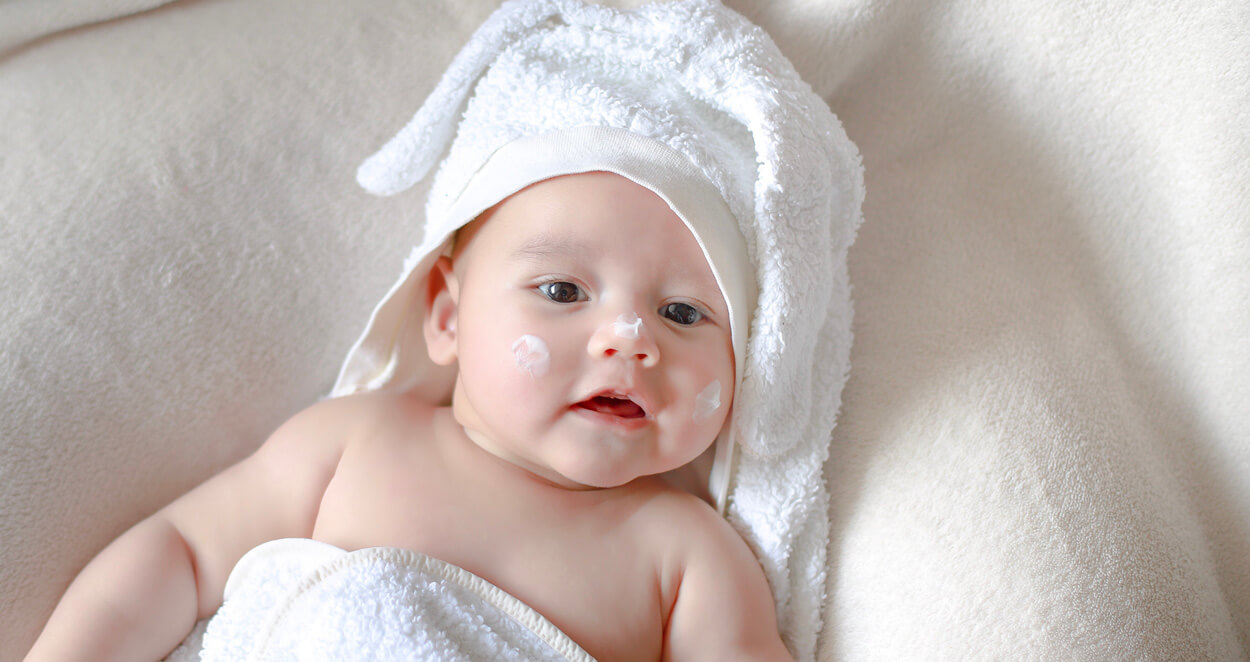How to take care of baby’s skin

27 Sep 2020
Did you know that the skin is the body’s biggest organ, and that it plays an important role when it comes to immunity? The skin protects the body from irritants and invaders, so it's important to take care of it.
An infant’s skin isn't fully developed, however, so it needs extra attention. Just like everything else about your baby, your little one’s skin is constantly changing. To help you understand how much, compare the thick skin underneath your feet with your baby's soft, tender soles. Baby’s developing skin can be prone to problems (like cradle cap or nappy rash), which is why it needs TLC. Here are some tips to keep your little one’s skin healthy (and your baby happy).
Use only baby skin products
These products are designed especially for infants’ skin, which is highly sensitive (in fact, baby’s skin is only half as thick as yours, which means it’s irritated a lot easier, especially in the first few months). As babies grow, their skin pH level becomes gradually lower. To make sure baby’s skin isn’t irritated when bathing, only use baby skin products, which have the correct pH levels. And be sure to avoid powdering, as baby can inhale the tiny particles.
Have plenty of skin-to-skin time
The skin is a sensory organ, and your baby uses their skin to feel their way through a brand-new world. Having skin time – when your little one is just in their nappy or naked and lying against your bare skin – is very important: not only does it help with bonding and stimulating the senses, but it also builds your infant’s immune system. In fact, the protective, bacterial flora on your skin will gradually be transferred to your baby’s skin.
Keep baby’s skin moist
A newborn’s skin has a higher fluid content than adults’ but it’s harder for baby skin to maintain an optimal fluid balance. This is why, even though your little one’s skin is so soft, it dries out very easily. To prevent this from happening, make sure that you moisturise baby after every bath (and use a thick, fragrance-free baby cream). Dry weather can impact baby’s skin, too, and it helps to use a cool-mist humidifier in your nursery to keep the air moist.
Your newborn’s skin will no doubt get bumps and rashes – that’s normal, as their skin is so sensitive. If you’re worried about a skin problem that’s not going away or seems to be getting worse, talk to your GP or Pediatrician. Most of the time baby’s skin just needs some extra love and attention.